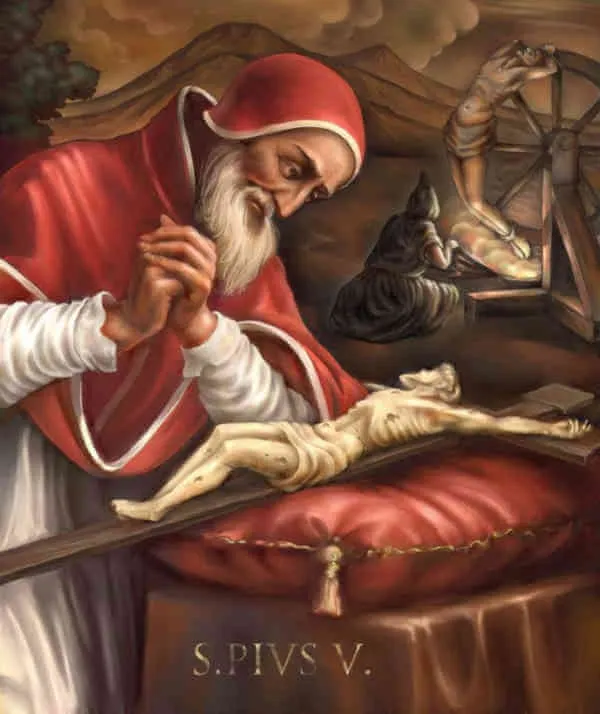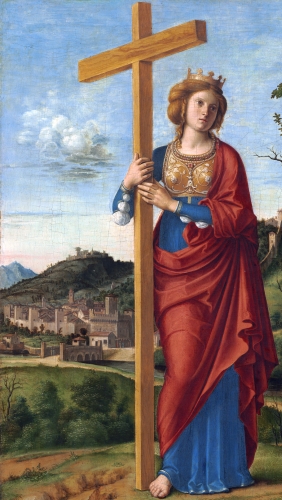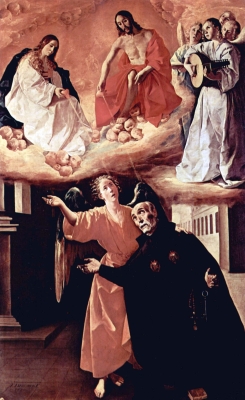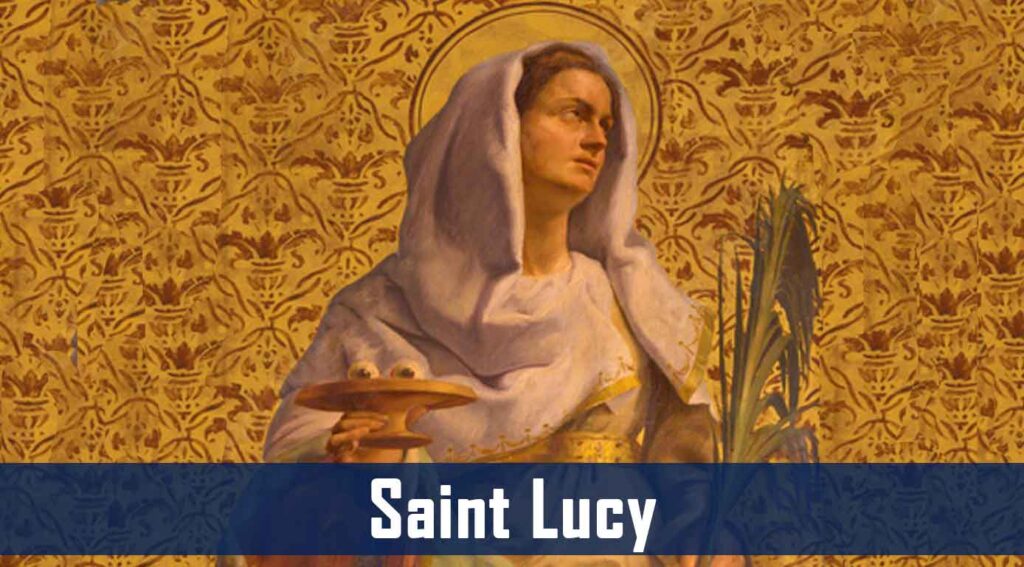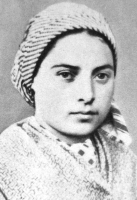1504–1572; Patron Saint of the Dicastery for the Doctrine of the Faith; Invoked for the reform and defense of the Church; Canonized by Pope Clement XI on May 22, 1712
In 1517, when Martin Luther published his Ninety-five Theses in Germany, igniting the Protestant Reformation, European kingdoms faced many challenges, and the Church was greatly in need of reform. Relations between the Church and State were constantly strained. Some civil rulers fought to keep their territory Catholic, while others fought to eliminate the Catholic faith. Many of these kingdoms warred against each other, and they were all in constant threat of Muslim invaders. Within the Church, reform was needed to address financial abuses, nepotism, poorly formed clergy, poorly structured governance, theological debates, and a lack of uniform liturgical worship. It was into this historical situation that today’s saint was born.
Antonio Ghislieri was born in the town of Bosco Marengo in northwest Italy. As a child, Antonio was poor and worked to help support his family. At the age of fourteen, he took the name Michele when he joined the Dominican order and received his education from the friars in Vigevano, Bologna, and Genoa. Throughout his formation, he was an excellent and hardworking student who was especially drawn to the study of Sacred Scripture and the teachings of Saint Thomas Aquinas. At the age of twenty-four, he was ordained a priest, and over the next sixteen years he taught theology and philosophy, formed Dominican novices, and served as prior in various friaries. As a young priest, Father Michele continued to deepen his life of prayer, developed a strong devotion to the Blessed Virgin Mary and the Rosary, made all-night vigils, embraced the Dominican charism, fasted, did penance, embraced poverty, and practiced interior silence by which he strove to remain continually recollected, refusing to engage in idle talk.
In 1542, as a way of addressing the ongoing threat posed by the errors introduced by the Protestant Reformation that was slowly finding its way into the Italian states, Pope Paul III reorganized the Italian Inquisition. Shortly afterwards, Father Michele was appointed to serve on several inquisitorial missions, which he did with unwavering determination. In 1556 Pope Paul IV made him Bishop of Sutri, a diocese just north of Rome, and one year later was made a cardinal. As a bishop and then cardinal, he continued to work with zeal, vigorously defending the true faith, weeding out heresy, correcting abuses, tightening Church structures, and personally living out the life of faith and morals to which he was called. He became so well respected, and his courage, clarity, and zeal were so beneficial to the Church, that the Holy Father made him the Grand Inquisitor to all of Christendom. In 1559, he was transferred further north to the Diocese of Mondovì but was regularly called to Rome to consult with the pope. In Mondovì, he vigorously sought to rebuild that diocese after it had been ravaged by wars, fueled by the theological confusion caused by the Protestant Reformation.
Bishop Michele was not a pushover, not even when it came to the pope. One of the ongoing abuses within the Church at that time was nepotism, the practice of bestowing ecclesiastical favors on one’s relatives. When Pope Paul IV announced to his court that he wanted to make his fourteen-year-old nephew a cardinal, Bishop Michele firmly opposed him and stopped that abuse. Though this led the pope to diminish some of Bishop Michele’s inquisitorial authority, it also led many of the cardinals to admire him. As a result, in 1566, Bishop Michele was elected as the new pope and took the name Pius V.
Just three years prior to Pius V’s papal election, the eighteen-year-long Council of Trent completed its final session. That council was the beginning of the Catholic Counter-Reformation that directly addressed theological and liturgical issues and sought to eliminate various abuses within the Church. All that was left to do was to implement the council’s decrees. That was no easy task, but Pope Pius V was unquestionably the man for the job.
From the beginning of his pontificate, Pope Pius V continued to be the holy, prayerful, conscientious, and determined man of God he had been since his youth. Rather than acting like royalty, he acted like a servant. He continued to wear his white Dominican habit (of which he kept only one), which is why the pope wears white today. He took the money set aside for extravagant papal banquets and distributed it to the poor. He visited the sick, built hospitals, prayed twice daily before the Blessed Sacrament, and resisted the entrapments that come with power and wealth. The Papal States, in particular, soon became more like a monastery rather than a kingdom.
To address the theological confusions dividing the Church, he promulgated a new catechism especially for parish priests, instituted catechetical classes for youth, introduced the teachings of Saint Thomas Aquinas in the universities, and continued the good work of the Holy Office of the Inquisition with pastoral zeal. To address ecclesiastical issues, he railed against immoralities within the clergy, more closely attached them to one diocese, mandated the seminary system, reaffirmed the practice of celibacy, exhorted bishops to remain in and serve their diocese as true shepherds, and renewed the weakening discipline within religious houses. To address the spiritual needs of the Church, he especially spread devotion to the holy Rosary, which he himself prayed in its entirety daily, and promulgated a new Breviary and Roman Missal. On a political level, he did not hesitate to chastise, or even penalize, wayward rulers. He defended Europe from Muslim invaders by working with various rulers to form the Holy League, a cooperative effort of Catholic kingdoms within Spain and Italy, that included the Order of Malta.
Throughout history, the Church has always been in need of internal reform. Though Christ never leaves His Church, those who are entrusted with its care are sinners. But among those sinners, God always raises up saints to redirect the Church and Her institutions down the correct path. In the sixteenth century, one of the most notable saints who God used for this purpose was Pope Saint Pius V.
As we honor this saintly pope, ponder your own calling to support the ongoing needs of reform within the Church. Those needs will always be there. Though you are not called to do so from the vantagepoint of the papacy, you are called to do so within the context of your own vocation. Ponder ways that you can reform your own life, your family, your local parish, and the community. Commit yourself to prayerful submission to the will of God, and seek the gift of courage so that God will use you in ways that are beyond your natural abilities.
Source: https://mycatholic.life/saints/saints-of-the-liturgical-year/april-30-saint-pius-v-pope/


